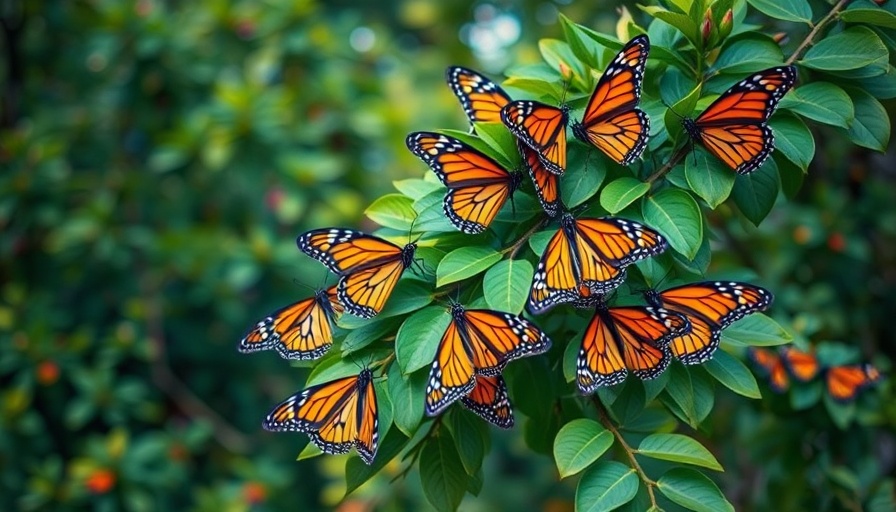
Why Monarch Butterflies Matter to Homeowners
Monarch butterflies are not just beautiful insects; they play a crucial role in our ecosystem as pollinators. For homeowners, encouraging these butterflies in your garden can help improve the health of your plants and flowers. Their decline presents an urgent call to action for anyone who loves gardening or cherishes the natural beauty of their outdoor spaces.
The Decline of the Western Monarch Population
Recent reports reveal alarming statistics about the western monarch population. In 2024, volunteers counted fewer than 200 butterflies at popular overwintering sites, a shocking decline from previous years when numbers were in the thousands. The latest figures show that western monarchs have plummeted to just 1% of their historic numbers, elevating concerns about their future. USDA's Fish and Wildlife Service is stepping in, proposing federal protection for these beleaguered butterflies under the Endangered Species Act.
Community Involvement in Conservation Efforts
Community-driven conservation efforts are vital in reversing the fortunes of the western monarch. Groups like the Xerces Society have mobilized volunteers to plant milkweed and nectar sources, essential for monarch survival. Additionally, social media has become a powerful tool for advocacy, allowing butterfly enthusiasts to connect and share resources widely, demonstrating how small actions can lead to substantial collective impacts.
Complex Challenges Facing Monarchs
The factors contributing to the decline of western monarchs are multifaceted. Pesticides, habitat loss, and climate change are all significant threats. In one distressing incident, volunteers discovered butterflies affected by several pesticides, reinforcing the need for a collective response to these dangers. Homeowners can take an active role by adopting pesticide-free gardening practices and creating welcoming habitats.
Steps Homeowners Can Take to Help Monarchs
There are actionable steps you can take right now to support the monarch butterfly's recovery. Plant native milkweed in your gardens, as it's the only food source for monarch caterpillars. Increase nectar-rich flowers to attract adult monarchs. Additionally, reducing or eliminating pesticide usage can also mitigate the harm to butterfly populations.
By creating a butterfly-friendly environment, homeowners not only contribute to conservation but also add beauty and life to their gardens. The effort to save the western monarch is a community challenge that requires participation from individuals and families to turn the tide against their decline. Everyone can partake in protecting this treasured species.
 Add Row
Add Row  Add
Add 




Write A Comment